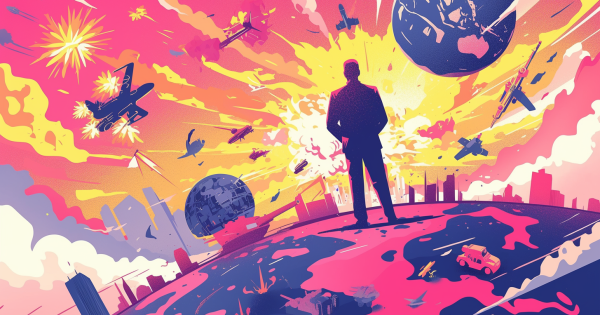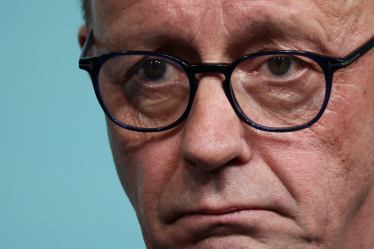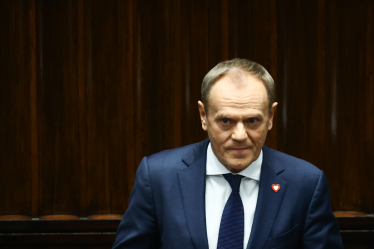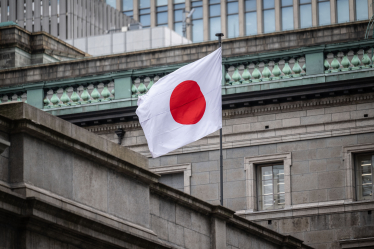
The Treaty on the Non-Proliferation of Nuclear Weapons (NPT), signed in 1968, has held back the global arms race for decades. Its basic formula is that the five official nuclear powers (the US, Russia, China, France, the UK) guarantee the safety of others so that they do not develop their own weapons. But with the advent of Donald Trump, this formula has been questioned. How the world is now preparing to defend itself against a nuclear strike – read in the FT report
A gift for true leaders
Forbes Certificate — 365 days of access to quality analytics, insights, and mind-blowing success stories. Buy Now
Confidence in the US nuclear shield is weakening. The return of Donald Trump to the US presidency, his undisguised sympathy for Moscow and criticism of NATO have forced many of Washington’s allies to ask themselves the question: what if America is no longer the guarantor of our security?
“The consensus on nonproliferation is really breaking down,” says Ankit Panda of the Carnegie Endowment. “Trump has been a catalyst, and voices have grown louder in allied countries that believe that only their own nuclear weapons can guarantee security.”

Popular Category Richest Date Today “Polish investors offered $4.5 billion for ATB.” First interview with co-owner of the country’s largest retailer, Viktor Karachun
In addition to the official “five”, India, Israel, and Pakistan have nuclear weapons. North Korea is the only country that has withdrawn from the NPT and continues its nuclear program. Analysts fear that if the United States withdraws guarantees, the number of nuclear states could reach 15–25, as the 35th US President John F. Kennedy once predicted.
Germany’s nuclear potential
Germany has always been a unique case: a large country with a powerful economy, a member of NATO, but without its own nuclear weapons, writes the FT. Everything changed in February 2024, when the leader of the opposition CDU bloc, Friedrich Merz, proposed considering nuclear security guarantees from France and Great Britain.
This statement became the catalyst for the biggest public debate in a decade. Some analysts went even further and began to ask a direct question: should Germany strive for its own weapons?

The most likely candidate for the position of German Chancellor, Friedrich Merz, is already talking about nuclear security guarantees from France and Great Britain. Photo Getty Images
The Büchel base is home to about 20 American B61 nuclear bombs. Defense Minister Boris Pistorius has said that the United States has not signaled the withdrawal of these weapons, and that the discussion itself is “an escalation we don’t need.” But behind the scenes, more and more politicians are admitting that confidence in the United States has waned since 2016 (Trump’s first term), the FT writes. And the situation in 2024 is forcing them to prepare a plan B.
“The problem is that this crisis is so serious that the allies are no longer confident that they can simply get along again,” says British expert Lawrence Friedman.
Opponents of the nuclear scenario point to political and reputational risks. Former German ambassador to the US Wolfgang Ischinger warned that even discussing nuclear status could cause a “storm of unprecedented proportions” – from Moscow, Warsaw, and Brussels.
But other experts, including Torsten Benner of the Global Public Policy Institute, insist that Germany should invest in “nuclear latency” – creating a technological foundation that would allow it to create weapons within months in the event of a threat.
Poland’s desires and resources
Poland has also broken the taboo. In March 2024, Prime Minister Donald Tusk first openly spoke about a nuclear partnership with France. President Andrzej Duda responded that it would be more appropriate to place American warheads in Poland.

Polish Prime Minister Donald Tusk supports French President Emmanuel Macron’s initiative for a joint nuclear umbrella. Photo Getty Images
“All these statements boil down to one thing: Poland wants a stronger nuclear deterrent,” says Marcin Idzik of the defense concern PGZ.
Poland has no nuclear infrastructure. The country has no operating reactors, and it plans to build its first nuclear power plant by 2035. Developing its own weapons is unrealistic: there is neither the technical base, nor the time, nor the money, the FT comments.
Former Defense Minister Janusz Onyszkiewicz considers Tusk’s proposal “hypothetical.” But Poland could join a collective European nuclear project, and Warsaw makes no secret of its desire to be among the first participants.
South Korea and anxiety amid threats from the North
The North’s nuclear program buildup, Pyongyang’s rapprochement with Moscow, and uncertainty about U.S. policy are all fueling debate in Seoul. The idea of developing its own weapons is no longer marginal. “Support is growing and strengthening,” says Sangshin Lee of the Korea Institute for National Unification.
Officially, the government is not talking about weapons. But leading politicians, including Seoul Mayor Oh Se-hoon, are calling for Korea to be allowed to stockpile nuclear materials, as Japan is doing.
South Korea has the densest network of nuclear reactors in the world. According to Professor Seo Kyung-ryol, the country could produce a primitive bomb in three months and a full-fledged one in two years if it mobilizes resources.
“Korea has everything: technology, experience, materials. It only lacks a political decision,” assures Lee Chun-gyun of KISTEP.
The problem is the sanctions. South Korea’s economy depends on exports, and withdrawing from the NPT could have disastrous consequences. But with Trump, some experts believe that now is a “window of opportunity.”
Power and taboos in Japan
Tokyo has 8.6 tons of plutonium stored – enough for several thousand bombs. Japan has a powerful industrial base, technology, and experience in uranium enrichment.
“Japan could create weapons within months of a political decision,” say American experts. But a political barrier remains. Article 9 of the Constitution prohibits military activity, as well as the maintenance of armed forces. Nuclear weapons are a topic virtually outside the realm of public discussion. And although discussions are already beginning to penetrate the political elites, they have not yet gone beyond the corridors.

Japan’s constitution prohibits the country from going to war, so creating nuclear weapons is the country’s last resort in the face of a new threat. Photo: Getty Images
“Plan A is to stick closely to the US. Plan B is to stick even closer to the US. The final plan is to create our own weapons,” says Professor Stephen Nagy.
Japan has another vulnerability – its geography. In the event of a strike on Tokyo and Osaka, the country could lose its statehood. It does not have a “buffer time” like the US, which can react to a threat in 30 minutes. Japan is given a maximum of five minutes.
“Nuclear strategy is not just about technology. It is a profound ethical and strategic choice that Japan is not yet ready to make,” Nagi concludes.